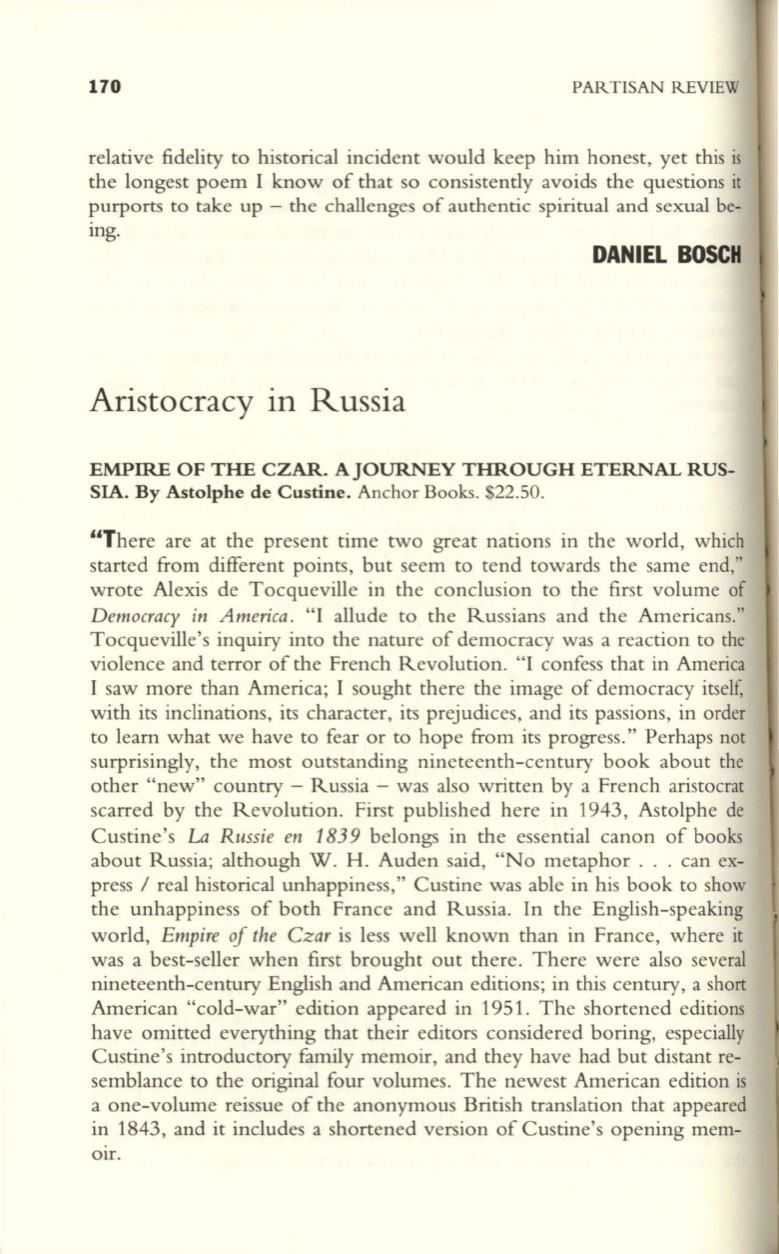
170
PARTISAN REVIEW
relative fidelity to historical incident would keep him honest, yet this is
the longest poem I know of that so consistently avoids the questions it
purports to take up - the challenges of authentic spiritual and sexual be–
mg.
DANIEL BOSCH
Aristocracy in Russia
EMPIRE OF THE CZAR. A JOURNEY THROUGH ETERNAL RUS–
SIA. By Astolphe de Custine. Anchor Books. $22.50.
"There are at the present time two great nations in the world, which
started from different points, but seem to tend towards the same end,"
wrote Alexis de Tocqueville in the conclusion to the first volume of
Democracy in America.
"I allude to the Russians and the Americans."
Tocqueville's inquiry into the nature of democracy was a reaction to the
violence and terror of the French Revolution. "I confess that in America
I saw more than America; I sought there the image of democracy itself,
with its inclinations, its character, its prejudices, and its passions, in order
to learn what we have to fear or to hope from its progress." Perhaps not
surprisingly, the most outstanding nineteenth-century book about the
other "new" country - Russia - was also written by a French aristocrat
scarred by the Revolution. First published here in 1943, Astolphe de
Custine's
La Russie en
1839 belongs in the essential canon of books
about Russia; although W . H . Auden said, "No metaphor ... can ex–
press / real historical unhappiness," Custine was able in his book to show
the unhappiness of both France and Russia. In the English-speaking
world,
Empire of the Czar
is less well known than in France, where it
was a best-seller when first brought out there. There were also several
nineteenth-century English and American editions; in this century, a short
American "cold-war" edition appeared in 1951. The shortened editions
have omitted everything that their editors considered boring, especially
Custine's introductory family memoir, and they have had but distant re–
semblance to the original four volumes. The newest American edition is
a one-volume reissue of the anonymous British translation that appeared
in 1843, and it includes a shortened version of Custine's opening mem–
Olr.


